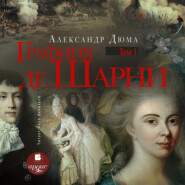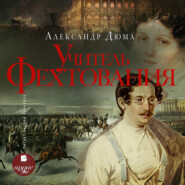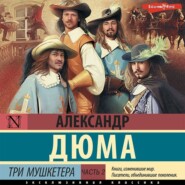По всем вопросам обращайтесь на: info@litportal.ru
(©) 2003-2024.
✖
The Hero of the People: A Historical Romance of Love, Liberty and Loyalty
Настройки чтения
Размер шрифта
Высота строк
Поля
In all the doorways and windows the servants and laboring men flocked to see their old fellow. He had a kindly glance for them all, a caress in his smile for the most part.
“So you come from town, Ange?” began Mother Billet. “How did you leave the master?”
“He is all right, but Paris is all wrong.”
The circle of listeners drew in closer.
“What about the King?” inquired the mistress.
Pitou shook his head and clacked his tongue in a way humiliating to the head of the monarchy.
“And the Queen?”
Pitou said never a word.
“Oh,” groaned the crowd.
Pitou was aching for Catherine’s coming.
“Why are you wearing a helmet?”
“It is a trophy of war,” rejoined the young peasant. “A trophy is a tangible testimonial that you have vanquished an enemy.”
“Have you vanquished an enemy, Pitou?”
“An enemy – pooh!” said the valiant one, disdainfully. “Ah, good Mother Billet, you do not know that Farmer Billet and yours truly took the Bastile between us.”
This speech electrified the auditory. Pitou felt the breath on his hair and the helmet mane, while their hands grasped the back of his chair.
“Do tell us what our master has done,” pleaded Mrs. Billet, proud and tremulous at the same time.
Pitou was hurt that Catherine did not leave her linen to come and hear such a messenger as he was. He shook his head for he was growing discontented.
“It will take a time,” he observed.
“Are you hungry, or thirsty?”
“I am not saying no.”
Instantly all the men and maids bustled about so that Pitou found under his hand goblets, mugs, bread, meat, cheese, without realizing the extent of his hint. He had a hot liver, as the rustics say: that is, he digested quickly. But he had not shaken down the Angelican fowl in rice; he tried to eat again but had to give up at the second mouthful.
“If I begin now,” he said, “I should have to do it all over again when Miss Catherine comes.”
While they were all hunting after the young girl, Pitou happened to look up and saw the girl in question leaning out of a window on the upper landing. She was gazing towards Boursonne Woods.
“Oh,” he sighed, “she is looking towards the manor of the Charnys. She is in love with Master Isidor Charny, that is what it is.”
He sighed again, much more lamentably than before.
Taking the farmer’s wife by the hand as the searchers returned fruitless in their search, he took her up a couple of the stairs and showed her the girl, mooning on the window sill among the morning glories and vines.
“Catherine!” she called: “Come, Catherine, here is Ange Pitou, with news from town.”
“Ah,” said Catherine coldly.
So coldly that Pitou’s heart failed him as he anxiously waited for her reply.
She came down the stairs with the phlegm of the Flemish girls in the old Dutch paintings.
“Yes, it is he,” she said, when on the floor.
Pitou bowed, red and trembling.
“He’s wearing a soldier’s helmet,” said a servant-woman in her young mistress’s ear.
Pitou overheard and watched for the effect. But her somewhat pallid though evercharming face showed no admiration for the brazen cap.
“What is he wearing that thing for?” she inquired.
This time indignation got the upperhand in the peasant.
“I am wearing helmet and sabre,” he retorted proudly, “because I have been fighting and have killed Swiss and dragoons: and if you doubt me, Miss Catherine, you can ask your father, and that is all.”
She was so absent-minded that she appeared to catch the latter part of the speech alone.
“How is my father?” asked she; “and why does he not return home with you? Is the news from Paris bad?”
“Very,” replied the young man.
“I thought that all was settled,” the girl objected.
“Quite true, but all is unsettled again.”
“Have not the King and the people agreed and is not the recall of Minister Necker arranged?”
“Necker is not of much consequence now,” said Pitou jeeringly.
“But that ought to satisfy the people.”
“It falls so short of that, that the people are doing justice on their own account and killing their enemies.”
“Their enemies? who are their enemies?” cried the girl astonished.
“The aristocrats, of course,” answered the other.
“Whom do you call aristocrat?” she asked, turning paler.
“Why, naturally, they that have grand houses, and big properties, and starve the nation – those that have everything while we have nothing; that travel on fine horses or in bright coaches while we jog on foot.”

















